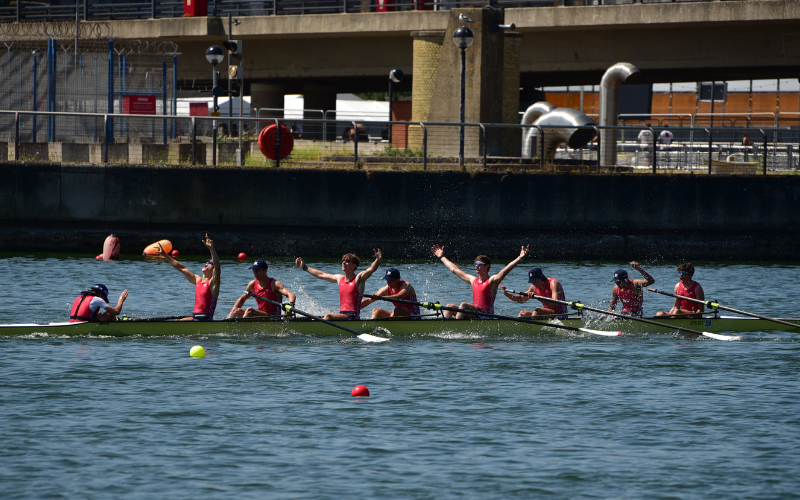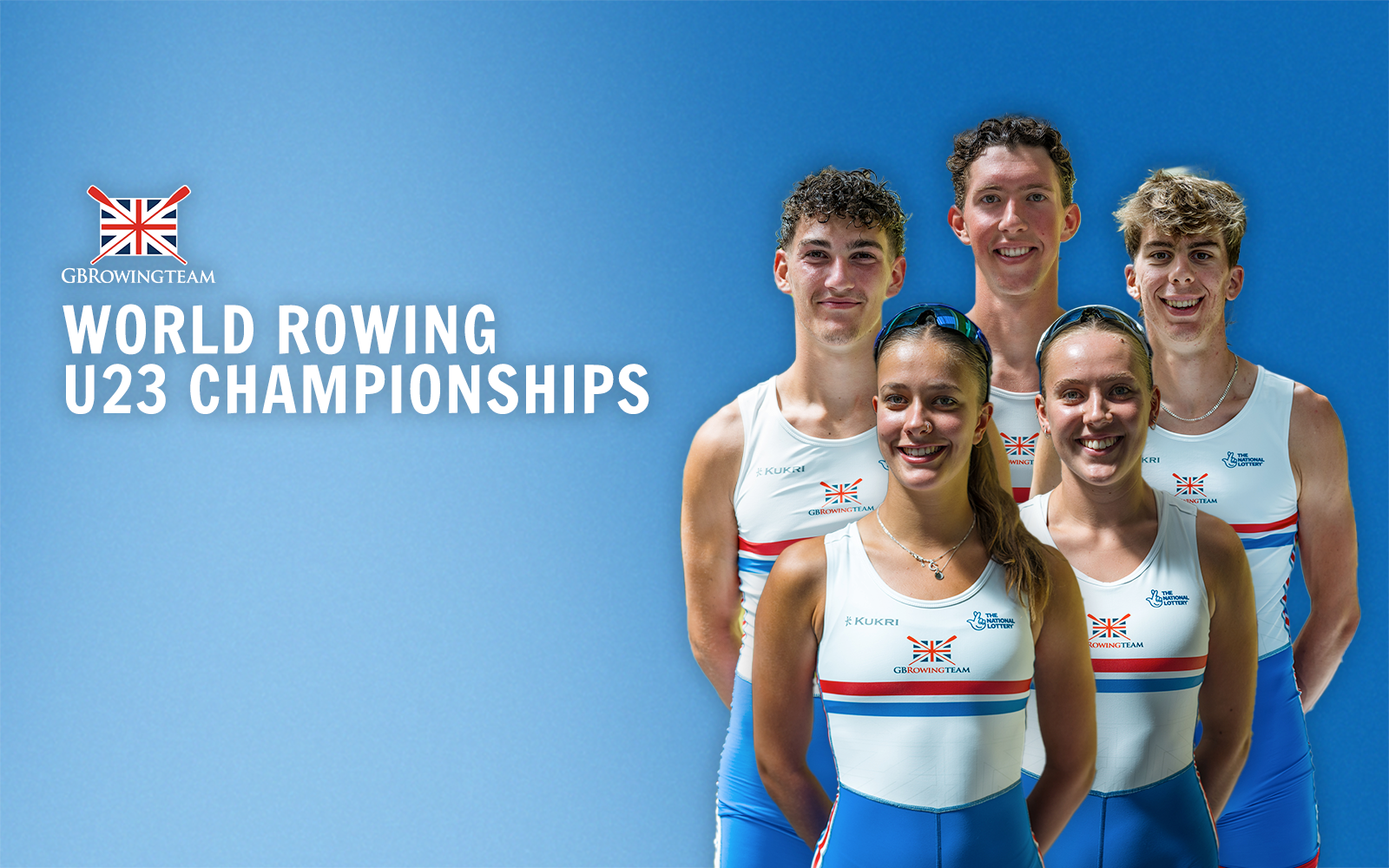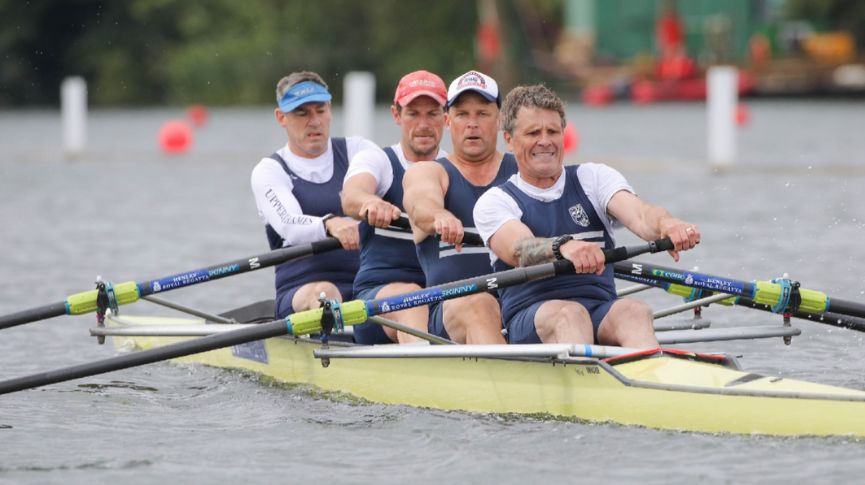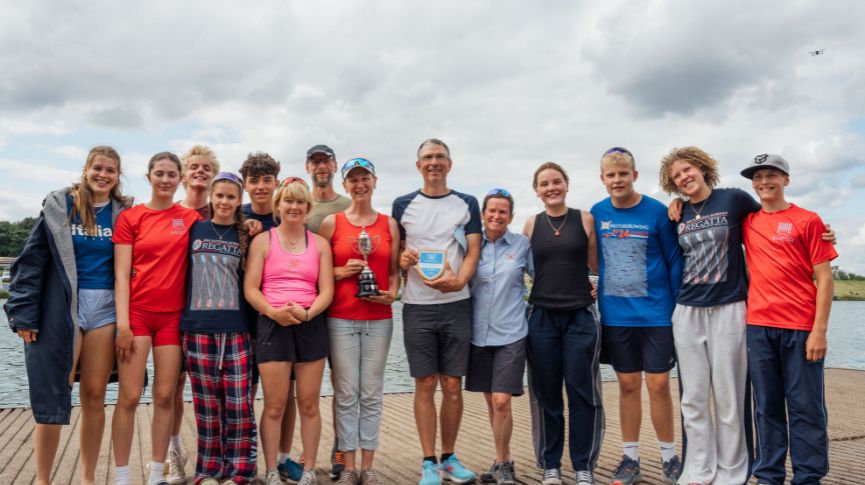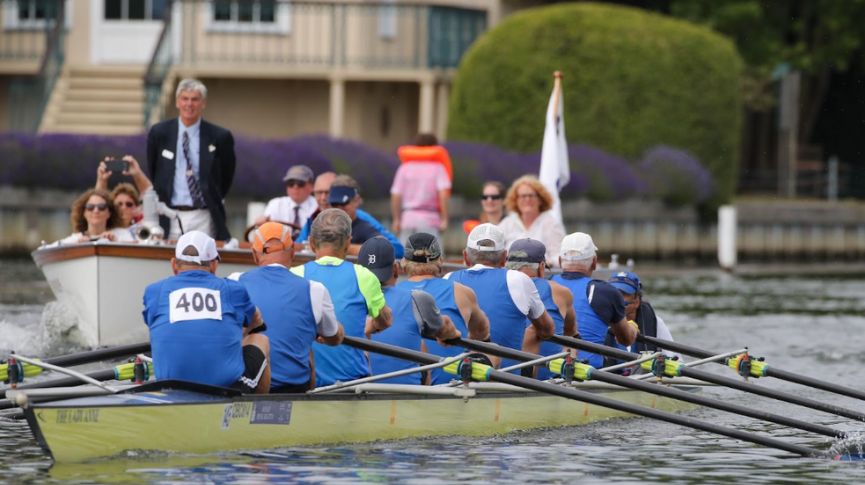‘I’m really looking forward to getting out of my comfort zone and trying a very different side of rowing’
Triple Olympic champion Andy Triggs Hodge is taking part in the GB Row Challenge around Britain on 12 June. Zoe Gullen finds out more
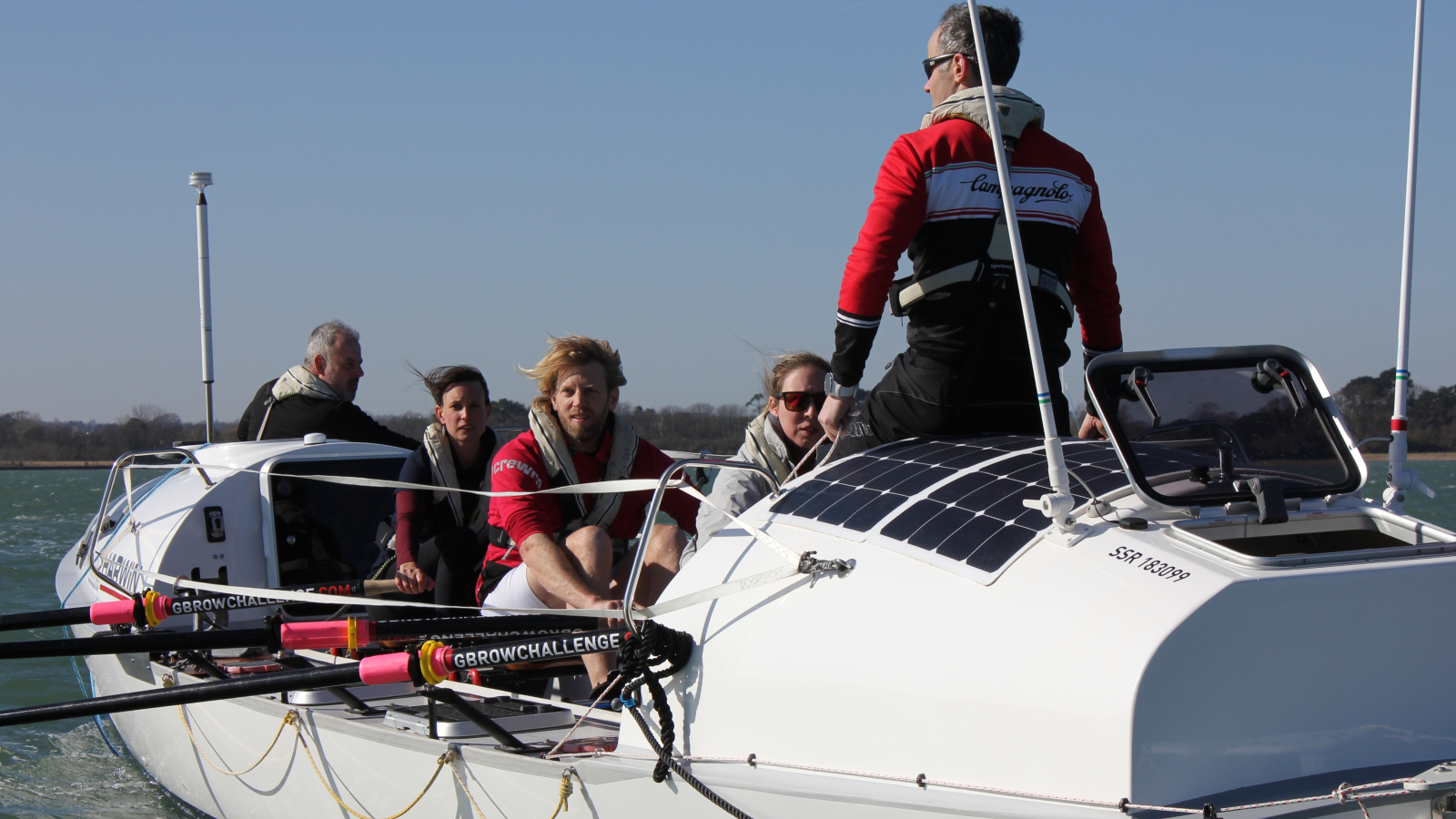
On 12 June, the three crews in this year’s GB Row Challenge, billed as ‘the world’s toughest rowing race’, will set off from Tower Bridge in London in a bid to circumnavigate Britain, and everyone’s invited.
Triple Olympic gold medallist Andy Triggs Hodge is part of Team Albatross – aptly named for the seabird that stays on the wing for months at a time, as crews will row non-stop for some 2,000 miles, a challenge Albatross are aiming to complete in around four weeks.
Andy says that a number of factors led him to take part: “The persistence of Will [de Laszlo, who will also be aboard Albatross], who is running the event, and also it’s really intriguing: the challenge, and the point of difference in how the crews have been built. It’s not just the fastest six, but [we have] different abilities and backgrounds. It shows there are different ways of rowing and different role models, and that the project is doing so much in terms of environmental research is awesome.”
He adds, “While I’m quite excited to be back in a boat again, being part of a team and in a critical environment – our lives will depend on each other, my core motivation is to support Active Row, LYR’s national outreach programme. I’m really looking forward to getting out of my comfort zone and trying a very different side of rowing.”
London Youth Rowing (LYR) have built an online platform for virtual teams to join the ocean crews.
“It’s a huge motivation for the teams to know that people are getting something out of journey,” says Andy.
“The platform was built for inclusion, so teams of any size, doing as much as they like, however they want to do it, they just need to have some fun!”
It will be Andy’s first experience of ocean rowing, which requires a very different technique from river rowing.
“There are transferable skills, but it’s not about power per stroke: it’s a little all the time, gently leaning on it. It’s two hours on, two hours off, so we’ll each be on the blades for about 12 hours a day. The moment you start digging deep you won’t recover.”
The crews have also had to learn a variety of skills for life at sea, including basic navigation, collision regulations and how to operate the VHF radio. It was, he says, “a lot to do beside your day job”, and there was additional training for the crew’s navigator, fellow Olympian Robin Bourne-Taylor, who will be responsible for plotting the best course.
“Sometimes we will be 20 metres away from land, sometimes 20 miles away,” says Andy. “We use the land, sometimes tucking in to make the most of the land breeze or for shelter in heavy weather, but we also need the best line.”
The challenge is completely unsupported – “It’s a VHF Mayday call if there is a crisis situation, and we’ll be doing everything we can to avoid that” – so the crews will set out with everything they need. This includes just two sets of kit, one ‘wet’ to row in, one ‘dry’, and calorie-dense food, including freeze-dried army rations – plus some treat.
“It’s important to have something sweet to look forward to.”
Drinking water will be provided by a solar-powered desalinator, and bathroom facilities by an on-deck bucket.
Asked what he is most looking forward to, Andy says: “I’ve made a conscious decision to break this down into pretty small chunks: Dover is the first waypoint. I’m definitely looking forward to the end goal – getting back home will be a big relief.’ And looking forward to the least? The bucket!”
In addition to the physical challenges, GB Row aims to ‘race with purpose’, by promoting marine conservation and youth outreach.
Each boat is equipped with sampling apparatus, and data collected en route will be analysed by researchers at the University of Portsmouth. The research will look at microplastic and noise as pollutants, as well as environmental stressors and environmental DNA to monitor the pollutions impact on marine biodiversity, an area of conservation in which crew member Kat Bruce is a world expert.
The research, Andy says, will give “the clearest picture that has ever been created of our seas. To be part of that project is something phenomenal.” And it doesn’t end there: the data collection via GB Row Challenge is set to run for a further three years, creating a huge dataset.
Each crew has also nominated a charity partner. Sea Legs, a mixed crew including former coastal and para rower Sophie Harris, are rowing for the Royal Marsden Cancer Charity, while All Systems Row, crewed by women from Bexhill RC and Shoreham RC, are supporting the development charity Renewable World.
Albatross is raising funds for GB Row’s youth outreach charity partner, Active Row. This is LYR’s core programme, which works with more than 90 schools and around 4,000 young people each year, in London and Leeds, and will be opening in Nottingham in the new academic year.
Andy, who works with LYR, says: “It’s about using rowing as a tool to motivate, inspire and empower young people who wouldn’t normally be able to access a sport like rowing. Coaches deliver the year-round programme promoting key life-skills: teamwork, problem-solving, aiming high, staying positive and leadership. When young people leave us, they have evidence of these skills.”
“The primary purpose is for us to champion Active Row and help to raise some funds. We’d love the rowing community to get involved and row along with us.”
He continues: “Our goal, as a charity, is to help kids break the glass ceilings around them, to achieve their best and get the most out of themselves.”
The mission of Active Row is also to dismantle financial and cultural barriers to participation in rowing.
“The sport has a really valuable place in society, and we’re rebuilding rowing to appeal to more people. While I’m proud of all facets of rowing, the difference LYR is trying to activate can really be celebrated. When I was rowing, the result always mattered, but it was also about finding meaning in the doing. The result doesn’t matter if you feel like you’ve done a really good job to get there. The result doesn’t matter so long as you are having fun doing it – and then this sport is magical.”
As part of that celebration, teams of any size can sign up for the event’s virtual challenge and row – or run, or cycle, or erg – the distance, and will appear on the GB Row virtual tracker alongside the three crews out at sea.
“The primary purpose is for us to champion Active Row and help to raise some funds. We’d love the rowing community to get involved and row along with us.”
Find out more about the GB Row Challenge here and get involved in the GB Row Virtual here – virtual teams will also be able to find out more behind the event, the environmental and the outreach


